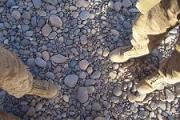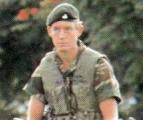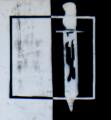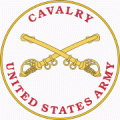Prior to my most recent deploy, I asked a few members from the Council what they had to say about shura etiquette, and how Afghans interact in those settings. I received good advice across the board, and put it to good use. In the wake of my last deployment, I compiled a few observations and lessons learned about the process of interacting with local leaders in a deployed context. If there is any interest, I'll post a copy of the KLE SOP that I drafted for use as a guide by our companies, once I can dig it up from my external hard drive.
In no particular order:
-KLEs were always an exhausting experience, both physically and mentally. Trying to have a sit-down in 120 degree heat with just a few bottles of tepid water as refreshment will guarantee an aggravating time for all, especially if the conversations aren't headed in the direction one hopes. The setting has to be considered if time allows for prior planning.
-KLEs were also exhausting because of the mental energy required to point-counterpoint with the leaders, keep them on topic, and stay two to three steps ahead of them. I can recall a number of KLEs where (especially if I was not the primary negotiator on the coalition side) I found myself nodding off due to sheer exhaustion from operations the previous night, or simply staying up way too late. In short, don't underestimate the benefit of a good night's sleep.
-You have to consider the audience - all of them - that you are dealing with, and how they fit into the overall picture. Put another way, the message you are trying to deliver to one leader might be completely counterproductive to the message you intend for another leader who is at the function. As a rule, it is generally better to be able to limit the number of attendees at a KLE, for this primary reason. If you can't do that, and you are not in control of the venue, make the investment in time to have the hosting leader conduct a detailed introduction of everyone in the room. Keep a human terrain expert (i.e. someone who is a SME in the tribal players and from your unit) close by to advise on the issues for consideration when a particular player is on scene.
-Don't be afraid to call a tactical timeout and step outside for some fresh air, a quick huddle to consider the next step, or simply make a head call. Too often we would sit for a lot longer than was reasonable, and when you are trying to stay hydrated in 120 degree heat, why sit cross-legged trying to hold it in because your host is able to go for hours without the need to relieve themselves?
-There are times when you have to read the mood and environment, and simply decide that today is not the day to push an issue, or delve too deeply into a subject. There were a number of times when it was simply more practical to pay a social call and reinforce the social bonds that you have already established.
-Our hubris tends to drive us to push our agendas in KLEs, almost to the point of no return, and that can be fatal to overall progress if the leaders are seen to have lost face. I can't stress how important that became during KLEs. If you go into a KLE and treat it like the negotiation that it really is, you'll probably fare better than if you strive to bend your audience to your will and coerce them into courses of action that are inimical to their interests. There are often layers of interest in competition with each other when security forces, tribal leaders, and government officials meet. For some of the attendees, their presence is not voluntary, but rather a necessity driven by a need to simply get their tribe's name "out there" so to speak. Understanding that fact, and understanding the benefit of positive sum game results, will help you achieve your aims.
ETA: Please share your lessons learned, and how the handbooks you used or training you received did or did not offer good guidance.














Bookmarks